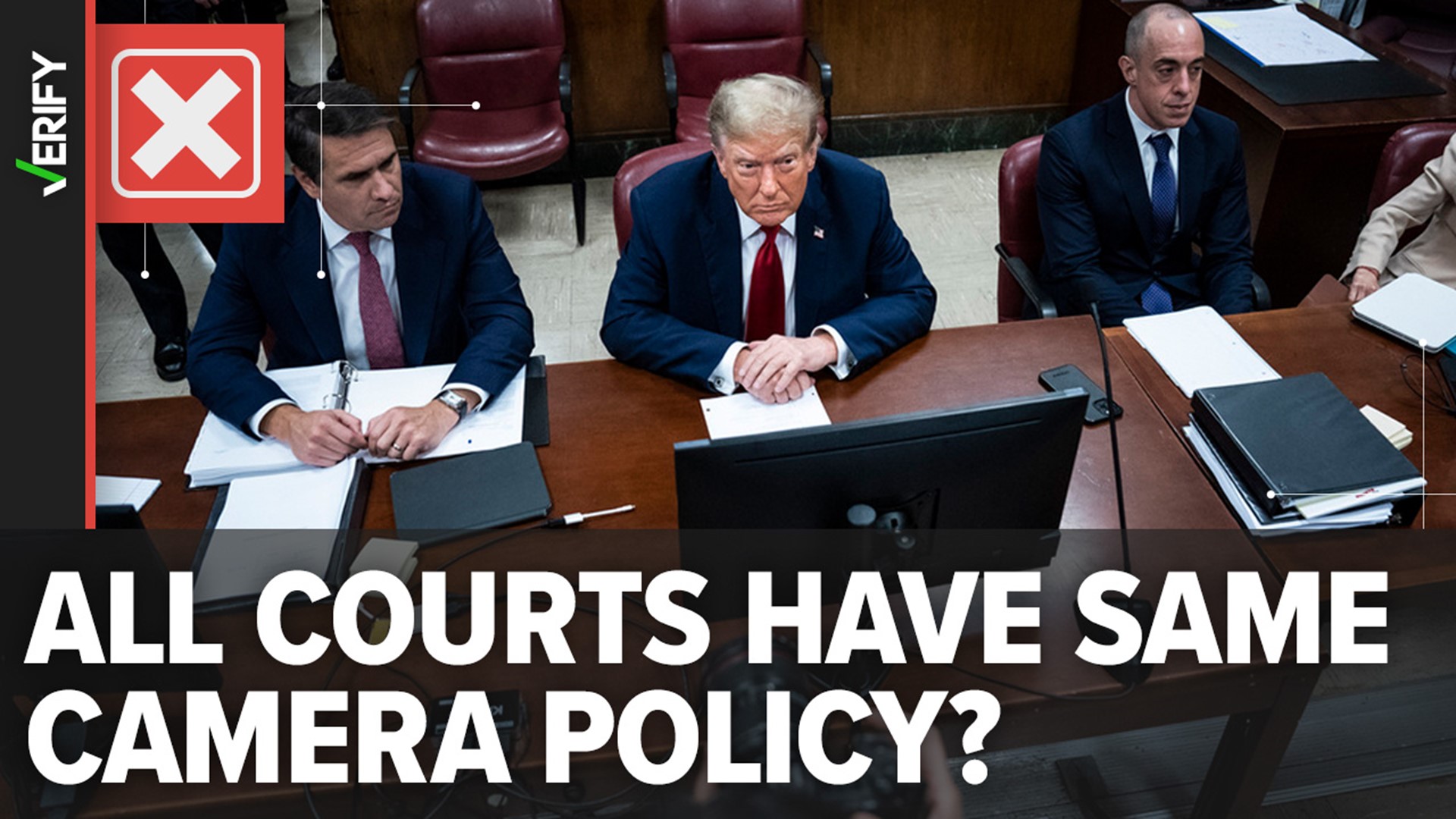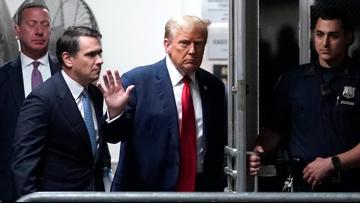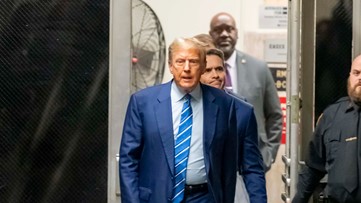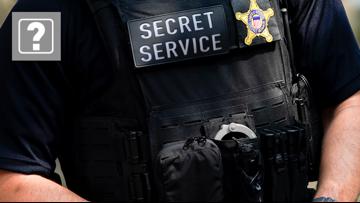On Monday, April 15, former President Donald Trump arrived at a New York court for the start of jury selection in his hush money trial. Trump is charged with 34 felony counts of falsifying business records as part of a scheme to bury stories that he feared could hurt his 2016 presidential campaign.
Cameras captured Trump walking in and out of the courtroom during the first day of the trial. But images from inside the courtroom are limited to photographs and sketches.
It’s a stark contrast to other high-profile cases, like the one between actors Johnny Depp and Amber Heard, which was televised, causing some social media users to question why Trump’s hush money trial is not being filmed.
THE QUESTION
Do all courts have the same camera policy?
THE SOURCES
THE ANSWER
No, all courts do not have the same camera policy. Federal and state courts have different rules for cameras during trials.
WHAT WE FOUND
All courts do not have the same camera policy. Federal courts are subject to a rule that, with few exceptions, bans cameras from the courtroom. State and local courts have more leniency to allow cameras in courtrooms.
According to the Administrative Office of the U.S. Courts, Federal Rule of Criminal Procedure 53 (Rule 53) forbids filming inside the courtroom during federal trials.
Rule 53 says that unless “otherwise provided by a statute or these rules, the court must not permit the taking of photographs in the courtroom during judicial proceedings or the broadcasting of judicial proceedings from the courtroom.”
State court rules for cameras vary depending on the state and the type of case. Judges can choose to allow the use of electronic devices in cases, often with strict guidelines and additional information required from attorneys.
New York state law bans cameras from trials unless a judge grants a rare exception. That’s why TV cameras won’t be in the courtroom to capture former president Donald Trump’s hush money trial.
Judge Juan M. Merchan, the judge presiding over the case, denied news organizations’ push to televise the proceedings. But Merchan agreed to briefly allow still photographers in the courtroom before the proceedings began. He also allowed TV cameras in the hallway outside the courtroom.
A 2022 report published by the Fund for Modern Courts, a court reform nonprofit organization, found that 48 state jurisdictions allow photographic coverage of both trial and appellate proceedings, although the rules vary widely.
A judge has allowed Trump’s election interference trial in Georgia to be televised and livestreamed. This is because cameras are permitted in Georgia court proceedings with a judge’s approval.
Meanwhile, in 2022, a Virginia judge allowed the defamation trial between Johnny Depp and Amber Heard to be broadcast live on TV. Other recent examples of state trials that were televised include those of Kyle Rittenhouse and Derek Chauvin.
The Radio Television Digital News Association (RTDNA) provides a free state-by-state guide about camera procedures in the courtroom on its website.
The Associated Press contributed to this report.












